I’ve read books in English, French, and Arabic. Both fiction and non-fiction.
Mostly, I’ll post here non-fiction English books. At least, the ones that I can recommend and might be relevant to most of you.
Also, I’ll skip the books that I read but don’t remember much of them. I spent a decade reading without taking notes. Please don’t do like me. It’s such a waste.
This section is only meant to spark your interest in books. So I’ll only write my impressions and three notes from the books. For more details, summaries and reviews, you can find them on Amazon or any other source.
For a faster research, you can click on any tag below to find the books of your interests.
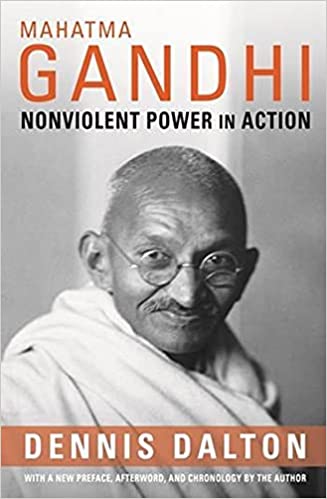
Mahatma Gandhi
Nonviolent Power in Action
Dennis Dalton
The book tackles Gandhi’s life from different perspectives making it a balanced analysis. It goes over Gandhi’s story before he became the Mahatma, how he evolved as a person, the origins of his unshakeable belief in nonviolence, inclusive leadership, the critiques of his contemporaries, the strengths and weaknesses of his method, his views on the Holocaust, and much more. Find out more in my 'Book Notes'.
Three notes from the book:
1- “The outward freedom therefore that we shall attain will only be in exact proportion to the inward freedom to which we may have grown at a given moment.”
2- “The belief that there is no connection between the means and the end is a great mistake. Through that mistake, even men who have been considered religious have committed grievous crimes. …there is just the same inviolable connection between the means and the end as there is between the seed and the tree. …We reap exactly as we sow.”
3- “Religion in the highest sense of the term. It includes Hinduism, Islam, Christianity, etc., but is superior to them all. You may recognize it by the name of Truth, not the honesty of experience, but the living Truth that pervades everything and will survive all destruction and all transformation.”
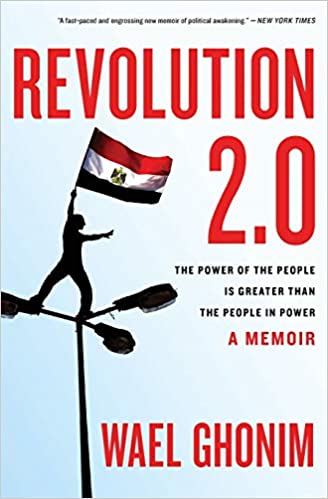
Revolution 2.0
The Power of the People Is Greater Than the People in Power: A Memoir
Wael Ghonim
I had no idea who Wael Ghonim was until I was researching for my article "(Almost) Everything You Need to Know About Media". I came across the work of Martin Gurri—author of The Revolt of the Public—who praised the book so much that I decided to buy it. I wasn't disappointed. Wael is definitely not an ordinary person. He moved from creating a Facebook page called "We Are All Khaled Said" to becoming one of the organizers of the Egyptian revolution. Moving people from the virtual to the real world and breaking the fear barrier was a great feat. And this book tells the story.
Three notes from the book:
1- The more you can get everyone involved in trying to solve your problems, the more successful you will be. I found it natural, a few years later, to apply this philosophy to political and social activism.
2- The strategy for the Facebook page ultimately was to mobilize public support for the cause. This wasn't going to be different from the "sales funnel" approach I learned at school. The first phase was to convince people to join the page and read its posts. The second was to convince them to start interacting with the content by "liking" and "commenting" on it. The third was to get them to participate in the page's online campaigns and to contribute to its content themselves. The fourth and final phase would occur when people decided to take activism to the street. This was my ultimate aspiration.
3- The rapid pace of events drove home one of the key strategies I learned from the revolution: to achieve your vision, you need friends and communication channels more than you need plans. The world moves too fast for even the best-laid plans to hold up.
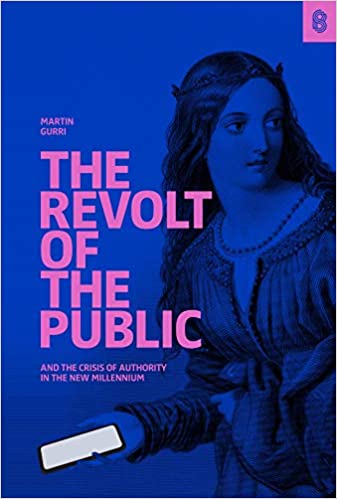
The Revolt of The Public
and the Crisis of Authority in the New Millennium
Martin Gurri
This is an essential book to understand major events of the last two decades. Events like the Arab Spring, the election of Trump, and Brexit are all connected. Similar events are happening all around the world. They describe a new reality. The access of the public to information changed the relationship to power. You can have a glimpse of the book from my article "(Almost) Everything You Need to Know About Media".
Three notes from the book:
1- The docile mass audience, so easily persuaded by advertisers and politicians, had been a monopolist's fantasy which disintegrated at first contact with alternatives.
2- Information had effects. And the first effect I perceived related to the sources: as the amount of information available to the public increased, the authoritativeness of any source decreased.
3- The [dictator] dilemma works this way. For security reasons, dictators must control and restrict communications to a minimum. To make their rule legitimate, however, they need prosperity, which can only be attained by the open exchange of information. Choose.
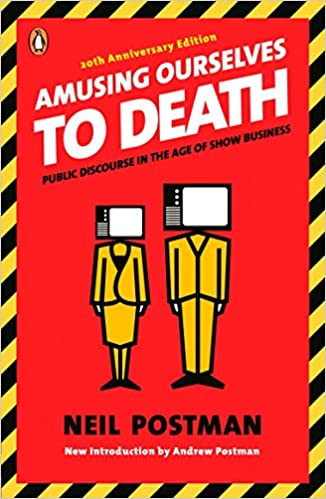
Amusing Ourselves to Death
Public Discourse in the Age of Show Business
Neil Postman
This book inspired my article "How Does the Media Change Our Culture, Worldview, and Brain?". Even if it was written in the eighties, it's still relevant today. Neil Postman reveals the embedded biases in our technologies and how they affect our culture. You'll understand why entertainment has such a big place in our societies.
Three notes from the book:
1- Orwell feared that the truth would be concealed from us. Huxley feared the truth would be drowned in a sea of irrelevance. Orwell feared we would become a captive culture. Huxley feared we would become a trivial culture… In 1984, people are controlled by inflicting pain. In Brave New World, they are controlled by inflicting pleasure. In short, Orwell feared that what we hate will ruin us. Huxley feared that we love will ruin us.
2- A major new media changes the structure of the discourse; it does so by encouraging certain uses of the intellect, by favoring certain definitions of intelligence and wisdom, and by demanding a certain kind of content–in a phrase, by creating new forms of truth-telling.
3- People will come to adore the technologies that undo their capacities to think.
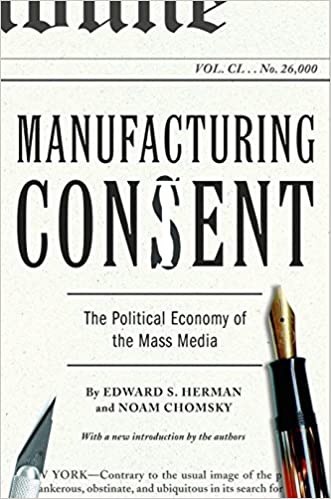
Manufacturing Consent
The Political Economy of the Mass Media
Noam Chomsky & Edward S. Herman
This book was a choc when it came out. It busted the myth that mass media are struggling out there in their search for truth and defense of justice. But contrary to conspiracy theories that imply media and power are working together, the authors point in another direction. They lay out their propaganda model based on five filters. If you don't have time to read the book, check my article "(Almost) Everything You Need to Know About Media".
Three notes from the book:
1- The mass media serve as a system for communicating messages and symbols to the general populace. It is their function to amuse, entertain, inform, and to inculcate individuals with the values, beliefs, and codes of behavior that will integrate them into the institutional structures of the larger society. In a world of concentrated wealth and major conflicts of class interest, to fulfil this role requires systematic propaganda.
2- The public is not sovereign over the media—the owners and managers, seeking ads, decide what to be offered, and the public must choose among these. People watch and read on the basis of what is readily and intensively promoted.
3- Advertisers will want, more generally, to avoid programs with serious complexities and disturbing controversies that interfere with the "buying mood".
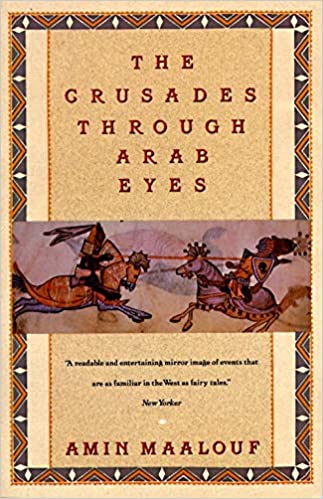
The Crusades Through Arab Eyes
The Other Side of The Story
Amin Maalouf
As I was writing this note, I realized that Amin Maalouf is one of the authors I read the most. I enjoyed reading 'Leo Africanus', 'The Rock of Tanios' or 'Samarkand'. The dry style of many history books makes them difficult to read. This one is written like a novel and you'll have a hard time putting it down.
Three notes from the book:
1- Regard the Franj! Behold with what obstinacy they fight for their religion, while we, the Muslims, show no enthusiasm for waging holy war. Saladin
2- When some of his collaborators chided him for his profligacy, Saladin answered with a nonchalant smile: There are people for whom money is no more important than sand.’
3- As for territory, this land has always been ours, and your occupation is only transitory. You were able to settle in it because of the weakness of the Muslims who then peopled it, but so long as there is war, we will not allow you to enjoy your possessions.






